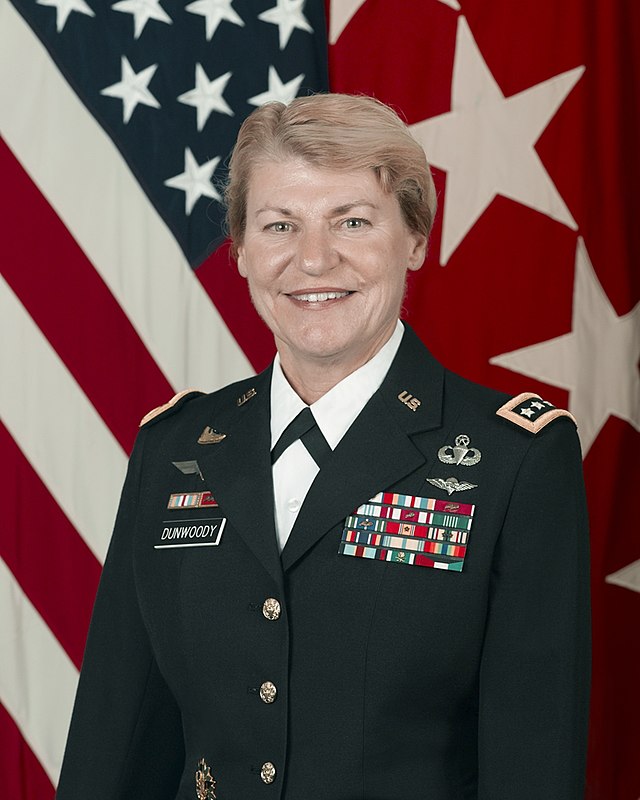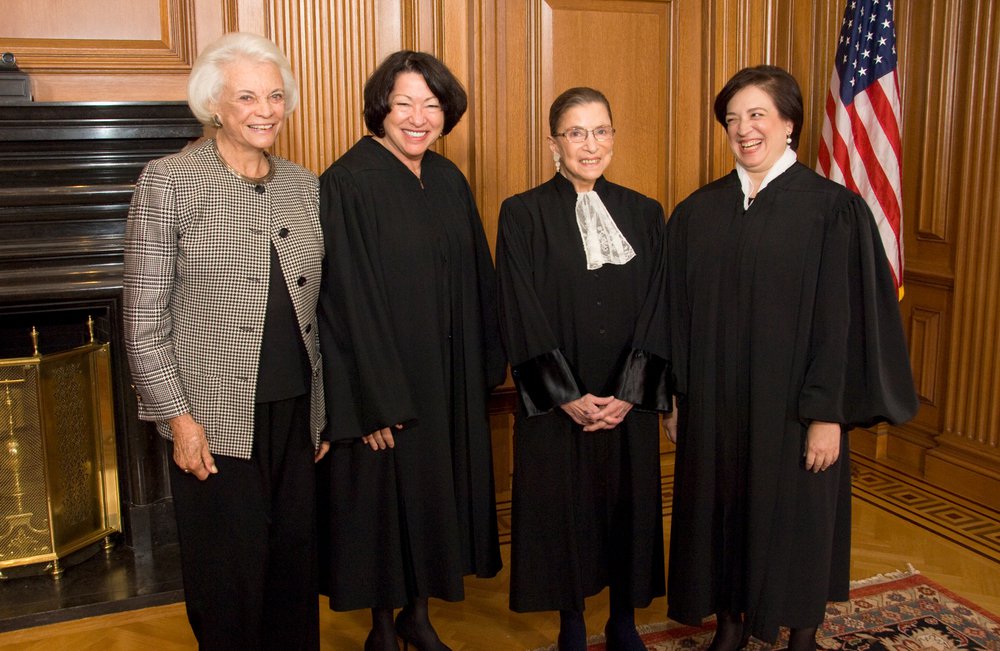For nearly 30 years I have been involved in a community church where the role of women in ministry has been a source of conflict. We have had close friends leave our church because they felt that our church had become too liberal in allowing women to occasionally teach from the pulpit. Others were critical that our church allowed women elders, and would never vote for any female elder candidates. Still others felt that the rule in our bylaws that the majority of elders had to be male to honor male headship was misogynistic. Our Elders have had open forums where congregants expressed their views to the congregation and leadership about this issue. I stood up and did so, expressing an opinion that I felt was from scripture, however it is a view I no longer hold. There are numerous tomes written on the topic, several on my bookshelf, which I diligently read. Until very recently, I have been reticent to discuss this topic, because I have not felt clarity from the Spirit of God. After all, there are passionate Christians who hold opposing views and are willing to divide over this issue. Why stir the pot more? What has changed?
I learned Greek and began translating the scriptures for myself, and was forced to slowly reexamine all of the passages speaking about biblical authority in marriage and the role of women in leadership. I found that the choices of modern translators were shaping my thinking, in ways that the original Greek did not suggest. I think there is a better, more consistent way of understanding these scriptures that allows women to serve whole heartedly without restricting the use of their gifts while still honoring the spirit of headship and the respect for derived authority that all of the passages in question demand.
Margaret Thatcher, Britain’s first woman Prime Minister (1979 – 1990).
This is not an academic exercise for me. Much to my chagrin, the issue has reared its ugly head in our new ministry context too. Recently my wife and I joined the Navigators, a parachurch ministry that is committed to making disciple makers. We are working with young adults pioneering a ministry called the Nav 20s of Greater Rochester. The Navigators organization is undergoing a splintering, with a significant fraction of folks leaving the Navigators, including several of our friends and colleagues, to form a new ministry organization. The primary reason is because of a Navigator policy change that now allows women to serve in leadership roles even over men. This blog is my attempt to respond to our Navigator leadership’s request to consider the question:
How do men and women partner together effectively in Navigator ministry to the world while following God’s design for marriage and the church?
Disclaimer: I believe that we all have a bias which affects the way we view this issue. None of us grew up in a vacuum. My parents are strongly egalitarian. My mother has a PhD, was the vice president of the Urban institute and one of the leading experts in philanthropy. When I was an atheist, I believed that any attempt at role restriction based upon sex was sexist. That is the way I was raised. It wasn’t until I became a Christian at age 25 and began to study the scripture systematically that I even entertained the idea of separation of roles for men and women. This complementarian view was what I saw in scripture, laid out in many modern translations. For many years, because of my background, I held a strictly complementarian view of scripture that restricted the leadership roles of women. It felt like a conviction of the Holy Spirit since it was so diametrically opposed to what I believed growing up as an atheist. However, practically God arranged for me to have a series of strong women leaders at Kodak over my 20+ year career in science. I had many direct project leaders who were women in positions of authority over me and a team of men. My wife was a group leader and a project leader. My entire organization had a female leader. Experientially my bias from a long career in industry would say that denying women leadership roles is foolish, since many of these women, who I worked for, were some of the most gifted leaders at Kodak.
General Ann Dunwoody, the first woman four-star general in the US Army (2008).
The Derivative Nature of Biblical Authority
It is important to realize that all of our authority comes from Jesus. The only reason any of us in the church has any authority to do anything is because Jesus gives it to us. Before we talk about the role of women, we need to understand our role as a believer, teacher, deacon, elder, or pastor. None of us has intrinsic authority. Jesus is the source of all of our authority.
Matthew 28:18 NIV1984 “Then Jesus came to them and said, “All authority in heaven and on earth has been given to me.””
Notice he does not say to his disciples: “All authority in heaven and on earth has been given to us.” He is the “King of Kings and Lord of Lords” (see Revelation 19:16). Authority is his alone. Jesus’ death on the cross and resurrection from the dead give evidence that everything has been entrusted to him.
Acts 17:31 NIV1984 “For he has set a day when he will judge the world with justice by the man he has appointed. He has given proof of this to all men by raising him from the dead.”
So why do we presume to shepherd, or teach, or preach, or prophesy? He graciously gives his authority to us to exercise on his behalf in his name. In fact, he gives us a lot of authority to bless the world:
Mark 16:15-18 NIV1984 He said to them, “Go into all the world and preach the good news to all creation. Whoever believes and is baptized will be saved, but whoever does not believe will be condemned. And these signs will accompany those who believe: In my name they will drive out demons; they will speak in new tongues; they will pick up snakes with their hands; and when they drink deadly poison, it will not hurt them at all; they will place their hands on sick people, and they will get well.”
Our authority in the church is derived from Jesus. In scripture, the apostle Paul, describes the derived authority of the church from Jesus as entirely parallel to the relationship between wife and husband.
Ephesians 5:22-33 NIV1984 Wives, submit to your husbands as to the Lord. 23 For the husband is the head of the wife as Christ is the head of the church, his body, of which he is the Savior. 24 Now as the church submits to Christ, so also wives should submit to their husbands in everything. 25 Husbands, love your wives, just as Christ loved the church and gave himself up for her 26 to make her holy, cleansing her by the washing with water through the word, 27 and to present her to himself as a radiant church, without stain or wrinkle or any other blemish, but holy and blameless. 28 In this same way, husbands ought to love their wives as their own bodies. He who loves his wife loves himself. 29 After all, no one ever hated his own body, but he feeds and cares for it, just as Christ does the church— 30 for we are members of his body. 31 “For this reason a man will leave his father and mother and be united to his wife, and the two will become one flesh.” 32 This is a profound mystery—but I am talking about Christ and the church. 33 However, each one of you also must love his wife as he loves himself, and the wife must respect her husband.
In verse 23 Jesus is called the “head of the church, his body”. Likewise the husband is proclaimed “the head of the wife in marriage”. Thus Christians call the authority and responsibility of men to lead in marriage “headship”.
Jesus, in Revelation, calls the entire church his “gunay,” his woman, his bride. We are collectively the bride of Christ:
Revelation 19:7 DCB ”We should rejoice and be joyful and give him glory because it has come: the wedding of the Lamb and his bride (gunay), she has made herself ready.“
In Greek there is only one word for woman, wife, bride, widow etc. It is γυνη (gunay nominative form) or γυναικα (gunaika accusative form). For example, in Luke 4:26, gunay means a widow, in 1 Cor 7:3 and the Ephesians 5:22-33 passage above, clearly a wife, in Matt 9:20 likely an unmarried woman with the flow of blood for 12 years. In Revelation 19:7 clearly a bride about to be married. This range of meaning is true for the Greek word ανδρας (andras) for man/husband/groom too. The translator is always having to decide from context which is intended. Unfortunately, a lot of our understanding of the biblical passages about the roles of “men” and “women” is determined by the translator’s choices.
Recognizing that our authority in the church to act for our head, Jesus, is all derivative and delegated to us from Jesus, and that we are called his bride, it then follows that “women” are permitted to teach, or pastor, or be elders, or lead the church. All the verses that appear to restrict the roles of “women” are really intended to make sure that when they operate in any leadership capacity, they are always being submitted to the proper headship from which their authority comes. So, for wives, they must first be submitted to their husbands – for unmarried women, to their fathers. For men, they in turn must be fully submitted to Jesus.
Indira Gandhi, India’s first woman Prime Minister (1966-1977).
Women, Modesty, Learning and Teaching
Understanding 1 Timothy 2:9-15
1 Timothy 2:9-11 DCB “I also want the women/wives to dress modestly, with decency and propriety, adorning themselves, not with elaborate hairstyles or gold or pearls or expensive clothes, but instead what is distinguished and fitting to women/wives professing reverence to god through good works. A woman/wife must learn in quiet calmness and all submission.”
Modest and appropriate is the admonition. This is not just for women but for all of us. We should be careful that our outer appearance does not undermine our witness. This word translated “reverence to God” is only found in one other place:
John 9:31 NIV1984. “We know that God does not listen to sinners. He listens to the godly man who does his will.“
Clearly godly reverence is a key virtue for both men and women.
Paul is addressing the disordered hearts of women/wives that may be seeking inappropriate attention in the last couple verses. Obviously, this theme continues as he addresses disorderly behavior in the church setting. It is helpful to realize that Jewish wives typically sat apart from the husbands in a synagogue setting so “asking your husband a question” in church would have been quite disruptive. It is also important to realize that when Paul stresses that a women must learn this was counter cultural, revolutionary and liberating for women.
1 Timothy 2:12 DCB “However to teach, I do not permit a woman/wife, nor to govern authoritatively a man/husband; but instead to be in quiet serenity.”
Here is one of the key texts used for arguing against allowing women to teach or lead men. Notice that how you think about this verse, in terms of gender roles in the church, depends strongly on whether you see this as specifically about headship in marriage or more generally applied to women and men. Let’s read it as I would translate it based upon the context of the verses that follow it and determine its context:
1 Timothy 2:12-15 DCB “However to teach, I do not permit a wife, nor to govern authoritatively a husband; but instead to be in quiet serenity. For Adam first was moulded, next was Eve. And Adam was not deceived; but the wife having been thoroughly deceived came into deliberate transgression with ramification to all future times. But she (the deceived wife, Eve) will be saved through the instrumentality of childbearing—if they (Adam and Eve) may abide in faith and sacrificial love (agape) and sanctification in company with soundness of mind.”
Paul bases the prohibition for a wife to teach or take authority over her husband upon timeless truth from Adam and Eve, which avoids the church trying to limit this admonition to the cultural context of Corinth. Further stating that they will both be saved through childbearing strongly suggests that the context is specifically marriage, favoring the wife/husband translation I have given. The Holy Spirit is warning wives to be very careful not to think that ministry is sufficient reason to usurp the authority of their husbands. This is just a new excuse for falling into the same trap that Eve did.
Paul’s first point to support this prohibition is the priority of Adam in being created before Eve. There is a lot of weight placed upon being born first in the Bible. The firstborn was given a double share of the inheritance and had both the authority and responsibility of taking care of the rest of the family. Undoubtedly God put a mantle of authority and responsibility upon the man over the woman by choosing to make him first. My exegesis in no way lessons that responsibility or authority. Paul’s second point is also an interesting one. He asserts that Adam’s sin was different than Eve’s. She was hoodwinked. Adam was not deceived, but instead, he chose out of his (idolatrous) love for her, to follow Eve in transgression and disobey God despite knowing it was a bad choice. The perfect tense also stresses that this poor choice by Eve to usurp Adam changed everything.

Nancy Pelosi, the first woman Speaker of the House of Representatives (2007-2011)
As an aside, the word in Greek ἐπλάσθη (pronounced “eplasthay”) that I translated as “moulded” is only used in one other place on the NT, Roman’s 9:20. It is found in the Greek translation of the OT (the Septuagint or LXX meaning 70) only in Job 34:15.
Job 34:14-15 NIV (DCB from LXX) “If it were his intention and he withdrew his spirit and breath, all humanity would perish together and mankind would return to the dust (“return to the earth from which he was moulded”).”
Clearly these passages are reaffirming the Genesis account of how man was formed like clay from the earth.
The translation of 1 Timothy 2:15 is challenging and probably needs a little clarification.
1 Timothy 2:15 DCB “But she (the deceived wife Eve) will be saved through the instrumentality of childbearing—if they (Adam and Eve) may abide in faith and sacrificial love (agape) and sanctification in company with soundness of mind.”
The subject of the first part of the sentence “she” is not explicit in Greek, it is assumed from the verb form (saved). The nearest antecedent traces back to the prior verse, “the wife who was deceived”, Eve. Also the subject of the verb abide, “they”, is plural and not explicit either. None of the prior nouns are plural. This makes the subject ambiguous. The obvious nearest antecedent is “Adam and Eve”. So in the most straightforward grammar I have chosen, Paul is not talking about the salvation of “women” (this plural form is never mentioned in this passage), but about the salvation of the original couple who fell. For Adam and Eve there is no doubt that salvation only comes through childbearing (ultimately the Messiah!). This translation raises the curious question about how they “abide in faith and sacrificial love (agape) and sanctification in company with soundness of mind”. My thought is that they must trust in faith that the sacrificial love of God will prevail and not give in to fear. The last word I translated “soundness of mind” is the opposite of insanity or irrationality (see Acts 26:25).
Notice how much the preconceived notions of the translator impact the translation.
So if we allow that the correct translation is wife, not a generic women, then the warning of this passage is about wives teaching without permission and usurping the authority of their husbands.
The important question is to ask, then, is whether a wife may teach if it is approved of by her husband and under his delegated authority. My resounding answer is yes! Since we, the church, are called the “bride of Christ”, and specifically the headship of the church under Christ is specifically likened to the headship of a husband over his wife, (see Eph 5:22-23), then the same delegation of authority that allows the church to teach under the authority of Christ, likewise allows a wife to teach under the permissive headship of her husband.
The first four woman on the Supreme Court: Justices Sandra Day O’Connor, Sonia Sotomayor, Ruth Bader Ginsburg, and Elena Kagan
Decorum in the Church, Women Using Gifts – Understanding 1 Cor 14:34-38
1 Cor 14:34-38 DCB “Wives should remain silent in the churches. They are not allowed to speak, but must be in submission, as the law says. 35 If they want to inquire about something, they should ask their own husbands at home; for it is disgraceful for a wife to speak in the church. 36 Or did the word of God originate with you? Or are you the only people it has reached? 37 If anyone thinks they are a prophet or otherwise gifted by the Spirit, let them acknowledge that what I am writing to you is the Lord’s command. 38 But if anyone ignores this, they will themselves be ignored.”
Again, Paul takes very seriously the issue of decorum in the church, saying that it is the Lord’s command to be silent and in submission and should not be ignored! Clearly the context of “asking their husbands at home” clarifies that this is an admonition for wives, hence my translation. This passage is speaking primarily about prophesy (see the rest of chapter 14, but most clearly from 1 Cor 14:1-3, and the immediate context of verses 1 Cor 14:29-33), so one might naturally expect that there would be no female prophets based upon this passage prohibiting women from speaking in church. The surprising thing is that this is clearly not the case from the rest of the Bible. In fact we read about a widow, Anna, who prophesied in the Jewish temple over the baby Jesus himself (Luke 2:36-38) and also 4 unmarried women who prophesied in the church:
Acts 21:8-9 DCB “Leaving the next day, we reached Caesarea and stayed at the house of Philip the evangelist, one of the Seven. He had four unmarried daughters (thugateres) who prophesied.”
Clearly Philip is serving as the spiritual headship for his unmarried daughters to prophesy in this passage. In fact in Acts 2:17 there is a promise that that the Spirit will be poured out on all people and that sons and daughters will prophesy.
So why is there such a harsh line drawn in the sand here in 1 Corinthians 14? These wives are being chastised in Corinth because they are “speaking in church” which disrupts the worship service without the permission of their spiritual headship, their husbands. Once again the admonition looks to be about submission to the appropriate headship, not about absolute prohibition. If I give my wife my blessing to speak by my authority, who are you to say she can’t? To claim she can’t is to undermine my authority, not hers.
According to Fortune Magazine, 10.4% of the Fortune 500 have a woman CEO (June 2023).
Personal Convictions:
I believe that Jesus came as a man. That God is our father. The authority and headship of the marriage is entrusted to the husband and is established by God from the very beginning. Adam was formed first. God made Eve as an etzer connegdo, (a suitable, tailor-made helper so that Adam would not be alone). When Eve usurped the authority of Adam, God still spoke to Adam and held him responsible.
I believe that the unity of marriage is of utmost importance to God. The commandment about adultery, was primarily not about sexual promiscuity, it is about protecting the sanctity of marriage. Even Jesus explanation about the serious nature of lust, are words aimed at protecting marriage:
Matt 5:27-28 “You have heard that it was said, ‘You shall not commit adultery.’ But I tell you that anyone who looks at a wife lustfully has already committed adultery with her in his heart.”
I believe that Jesus appointed 12 male apostles as the head of the church. This choice sets a norm for male leadership of the church. However, this is not a law, just a norm. Judges were all men too until God appointed Deborah. If God appoints a female leader, dare we contradict him?
I believe that the complete unity in marriage is more important than our concepts of roles in the church. In what sense are we truly one? My strong conviction is that God has placed my wife Linda and I together to serve in any role that he assigns. Sadly in the church we try to make all sorts of distinctions that violate this. Am I an elder in my church, but my wife isn’t? Is she a deacon, and I am not? Am I a pastor and she is not?
Matt 19:4-6 “Haven’t you read,” he replied, “that at the beginning the Creator ‘made them male and female,’ and said, ‘For this reason a man will leave his father and mother and be united to his wife, and the two will become one flesh’? So they are no longer two, but one flesh. Therefore what God has joined together, let no one separate.”
I believe that all authority in heaven and on earth has been given to Jesus. Any authority we have has been delegated from Jesus. When God gives us authority, he also gives us the right to share our authority and the responsibility for how it is handled when we do share it. I believe that I am free to delegate authority to my wife and that God expects me to do so in a way that she can use all her gifts to the utmost of her capability. Each marriage will look different in regard to how tasks and responsibilities will be split up, because the gift mix in husbands and wives vary dramatically.
I believe that Paul told Titus to appoint male elders and deacons (Titus 1:5-9), to set a norm, but not a law. The point was not expressly restricting women from being called to those roles. The point was to indicate the kind of character needed for leadership. Just like Deborah, if God raises up a woman elder, dare we contradict God?
I believe that there is not a problem with having women contribute in a church service in any form, whether married (under the authority of their husband) or unmarried (under the authority of their father). However, this is clearly not to happen outside of the delegated authority of the appropriate headship that God has ordained and is to be done with decorum.
I believe that the Navigators, as a parachurch ministry that adheres to Biblical standards, is free to have women serve in any role, but those women should never be operating outside the appropriate headship that God has provided for them.
The first six US female astronauts (left to right): Shannon W. Lucid, Margaret Rhea Saddon, Katherine D. Sullivan, Judith A. Resnik, Anna L. Fisher and Sally K. Ride.
Personal Application
Because this is true I will accept leadership and contributions from women who demonstrate appropriate deference to the male headship God has placed in their lives.
I understand and appreciate that you, reader, may have convictions that are very different from mine. I hope that sharing some of my journey, and what the Lord has shown me is a blessing.
The Next Generation of World Changers: Our daughters (Stephanie, Maria, Katrina), Niece (Alyssa) and grandchildren (Jack, Wesley, Jamie, Rosie, and Violet).








